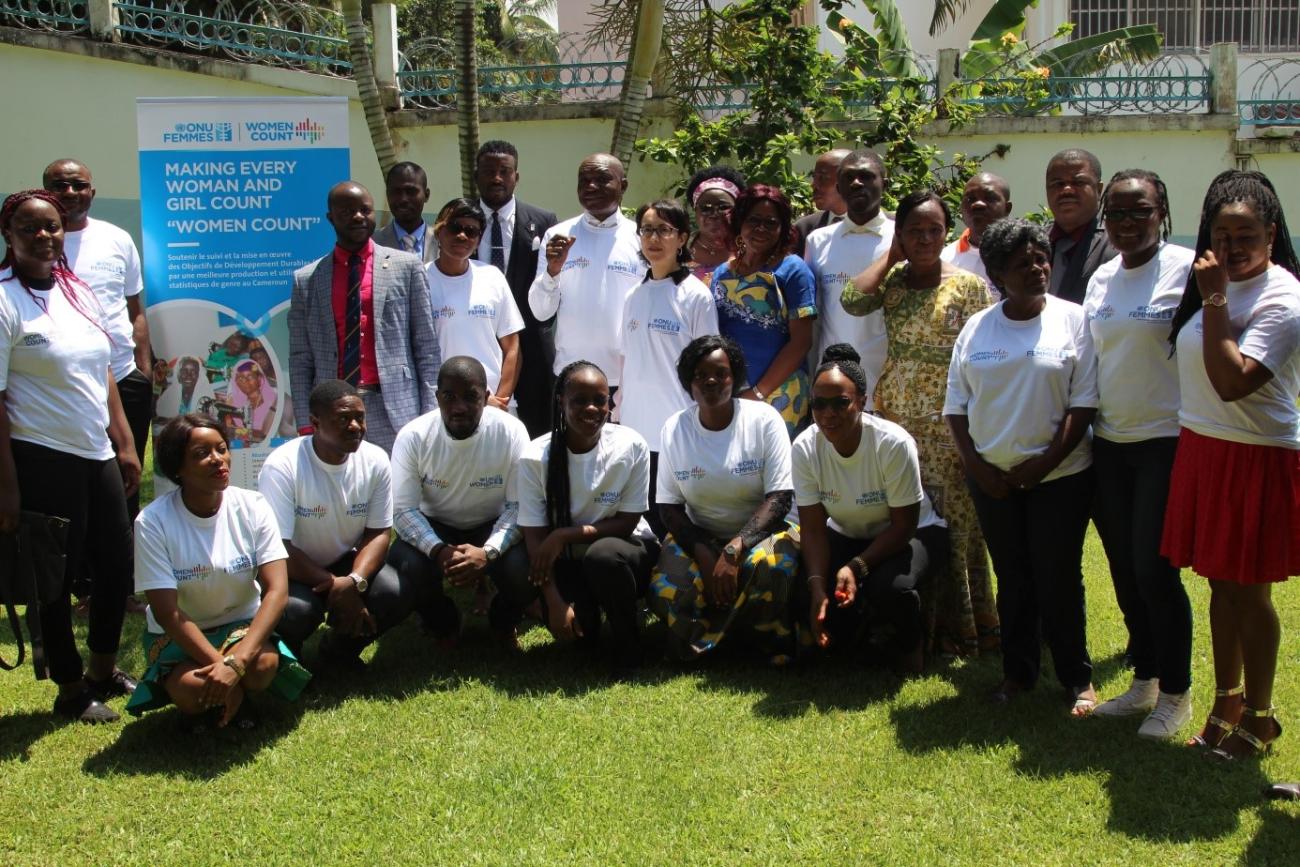In prelude to the 29th edition of the African Statistics Day to be celebrated in Cameroon, UN Women organized a roundtable for Producers and Users of Statistics
In prelude to the 29th edition of the African Statistics Day to be celebrated in Cameroon on 18th November, UN Women organized a roundtable for Producers and Users of Statistics 12 and 13 November 2019. The round table discussions centered on debating the challenges and opportunities in the production and dissemination of gender statistics. UN Women aims through the organization of this round table to support the National Statistical System (NSS) of Cameroon to develop and implement a strategy for mainstreaming gender in statistics to meet the differentiated needs of users as well as to promote effective dialogue between producers and users of official gender statistics.
According to Hind JALAL, UN Women Deputy Representative, to ensure the follow up of the implementation of 2030 and 2063 agendas, national sector policies, National Development Plan and to make sure no one is left behind, there is a high need of desegregated data and gender data. “This explains why there is an urgent need to foster the production of high quality gender data, provide support to the National Statistic System and enhance communication between users and producers” Ms Hind noted.
During these two days, the different articulations focused on current practices in the production and dissemination of official gender statistics in Cameroon: challenges and perspectives, in accessing official gender statistics in Cameroon by different users and platforms for the dissemination of gender data. The discussions revealed several limitations and identified some innovative approaches to address them;
TATSINKOU Christophe, Research Fellow at the National Institute of Statistics, noted that financial constraints remain the main challenge in producing and effectively disseminating statistics, particularly gender statistics. “This is why the National Institute of Statistics is organizing a conference on November 14th to evaluate the National Statistics System and discuss financing of statistics as a tool for decision-making” he explained.
According to Dr NGUEULIEU Elias, Assistant to the Head of the Department of Sociology at the University of Yaoundé I, the lack of effective and sustainable collaboration with the national statistical system leads to a reduction in the quality of research outputs from universities. “We believe that by increasing collaboration, building their capacity in quantitative data collection, gender analysis, facilitating their access to databases and official statistics, we can have more credible data and research and a certain attraction for younger generations of researchers to use those data”.
At the end of the two days several key resolutions emerged from the reflections of stakeholders during this activity: Integrate universities into the data collection and processing process, validate indicators for greater credibility and reliability of the data collected; strengthen CSO capacities to align them with data collection, analysis and reporting standards for better quality data produced in the field; facilitate data access procedures, involve the network of journalists in the use of easily digestible, adapted and adequate means of disseminating statistical information (NICT); and involve universities, research institutes and Civil Societies organizations in the process of formulating indicators and Survey/census questionnaires.


